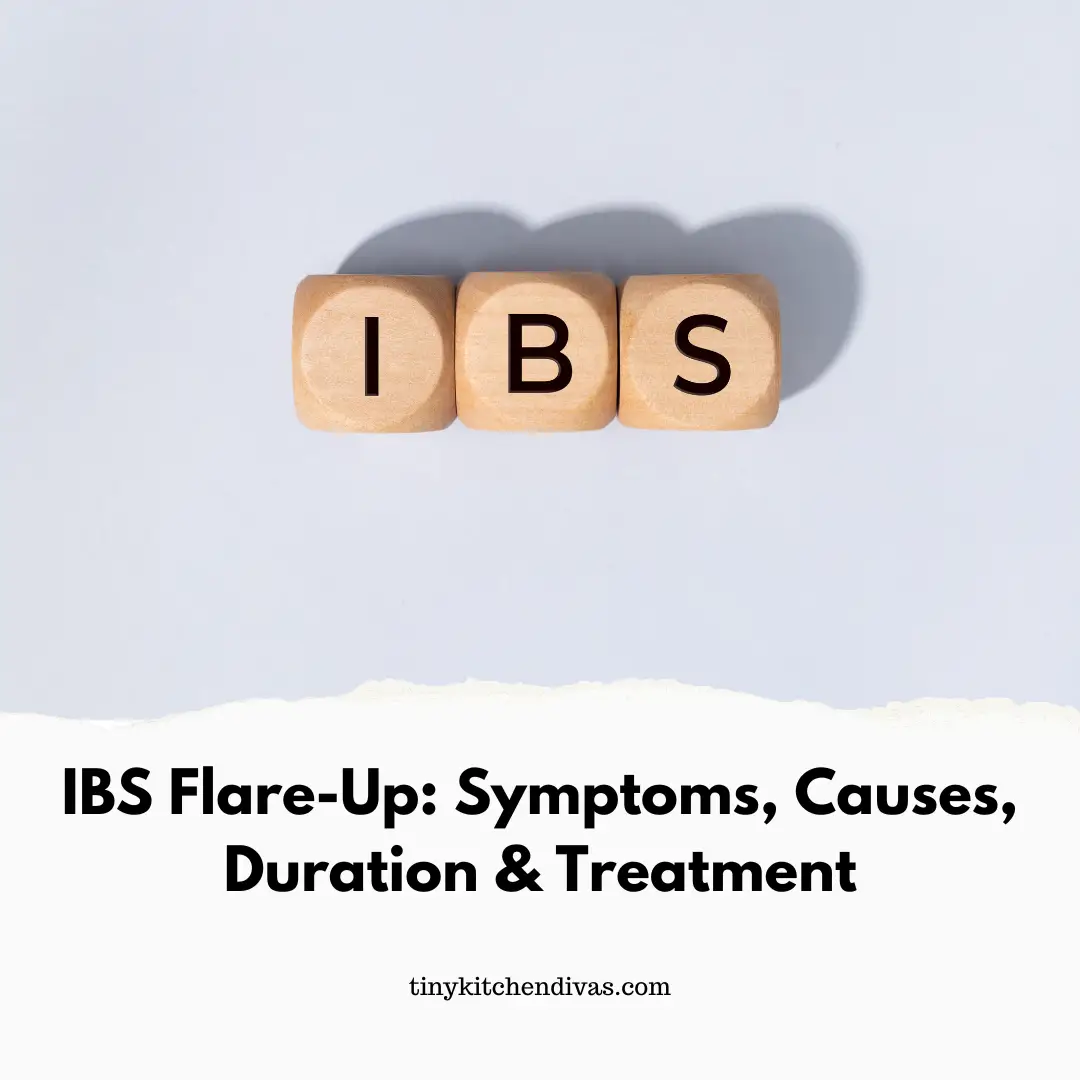Since irritable bowel syndrome (IBS) is a chronic disorder, patients tend to suffer symptoms even after they have fully recovered.
IBS flare-ups are times when the IBS symptoms are more severe than usual. Constipation, diarrhea, bloating, and abdominal discomfort are possible symptoms.
You may learn more about the typical signs and symptoms of IBS flare-ups, their length, and treatments in this post.
What is an IBS flare-up?
An IBS flare-up is a period of time when the symptoms of irritable bowel syndrome are worse than usual. Flare-ups can last for a few days or weeks, and can be triggered by stress, certain foods, or other factors.
What is IBS?
Irritable bowel syndrome (IBS) is a chronic digestive disorder that affects many people. Constipation, diarrhea, bloating, and stomach cramps are examples of symptoms. The symptoms of the illness can alter over time, but they are frequently lifelong. IBS can be successfully handled with the correct approaches.
IBS flare-up symptoms
IBS can affect some people daily while leaving others symptom-free for extended periods of time. You are said to be going through an IBS flare-up if your symptoms suddenly worsen over time.
Below are the Common signs of an IBS attack:
- Abdominal pain
- Swelling or bloating
- Excessive gas
- A feeling that the bowels are not empty after passing stools
- Diarrhea or constipation
How long does an IBS flare-up last?
IBS is a chronic disorder that could last a lifetime. How it arises and how to treat it are not fully understood by medical professionals. Symptom relief is the goal of treatment.
Flare-ups of symptoms can persist for days, weeks, or months and typically come and go over time. The length of these symptoms may affect a person’s everyday activities and quality of life.
One year after diagnosis, more than 30% of patients report long stretches without symptoms, and more than 50% do so after 10 years. IBS symptoms might go for extended periods of time without appearing, but they regularly return.
What causes an IBS flare-up?
There are many possible causes of an IBS flare-up, including stress, certain foods and drinks, hormonal changes, and medications. Some people with IBS find that they are more sensitive to certain stimuli than others, so what triggers a flare-up for one person may not have the same effect on another. Keeping track of your own individual triggers can help you to avoid or minimize them.
How to manage an IBS flare-up at home
We have listed down the different food items and techniques that you can do at home to manage your IBS symptoms. These techniques might lessen some of your discomforts, depending on how severe the symptoms are.
With the use of these techniques, you might regulate your IBS naturally. However, if your symptoms worsen or persist, you should seek medical attention for a specific diagnosis and treatment options.
Avoid high-FODMAP foods
Foods high in “FODMAPS,” which are small carbohydrate molecules that cause gut bacteria to produce gas, commonly cause the symptoms of IBS. There are many foods that are high in FODMAPs, including wheat, dairy, beans, lentils, and certain fruits and vegetables. Many people with digestive issues find that avoiding high-FODMAP foods helps to reduce symptoms.
It could be difficult to choose meals to eat when suffering from an IBS flare-up. A low-FODMAP diet typically reduces IBS symptoms in sufferers.
To see a complete list of the food items that you should consume and should not, we have created a low fodmap food plate to help you out.
Reduce stress
Due to the connection between the gut and the brain, stress can exacerbate symptom flare-ups (literally a chemical connection between your gut and brain).
Therefore, relaxation techniques that calm the mind can help calm the stomach. It’s critical to identify what stresses you out so you can deal with those situations effectively. Exercise, breathing exercises, meditation, visualization exercises, relaxation techniques, and picking up a new interest can all help you to de-stress.
Try gut-directed hypnotherapy
This “miscommunication” between the brain and gut is addressed through gut-directed hypnotherapy. It is a unique mental state where a qualified therapist helps a client enter while feeling extremely relaxed. The method creates a therapeutic impact by combining relaxation, images, and suggestion.
Try peppermint oil
One of the simplest methods to treat IBS symptoms is with peppermint. You can consume peppermint in the form of oil, capsules, or tea.
According to a study that examined the effectiveness and safety of peppermint oil for persons with IBS, it greatly lessened the occurrence and severity of the following symptoms:
- Constant abdominal pain
- Excessive gas
Tips for including peppermint in your diet:
- Peppermint Tea. Abdominal discomfort sufferers could find a peppermint tea bag beneficial for their symptoms. For added flavor, squeeze some lemon in.You can also get a mint plant to ensure that you always have fresh leaves available for boiling at any time of the day if you want a fresher beverage.
- Peppermint Supplements. These rapidly acting liquid capsules, which are simple to consume, contain a potent combination to reduce gas and bloating.
Reduce caffeine intake
One to two cups of coffee should be your daily consumption if you have IBS. If symptoms are especially severe, you might want to think about quitting coffee completely or seeking medical counsel.
Exercise
Abdominal discomfort can be lessened by exercise because it releases endorphins, which are natural painkillers. Regular exercise can help reduce stress, anxiety, and depression, which can all contribute to worsening IBS symptoms.
Calm Your IBS In 6 Weeks
Taking your condition to a professional is always the best way to go when it comes to IBS. We can help you calm your symptoms in just 6 weeks! We also offer a free discovery call to get to know what treatment would be best for you.
Book a free discovery call here.


